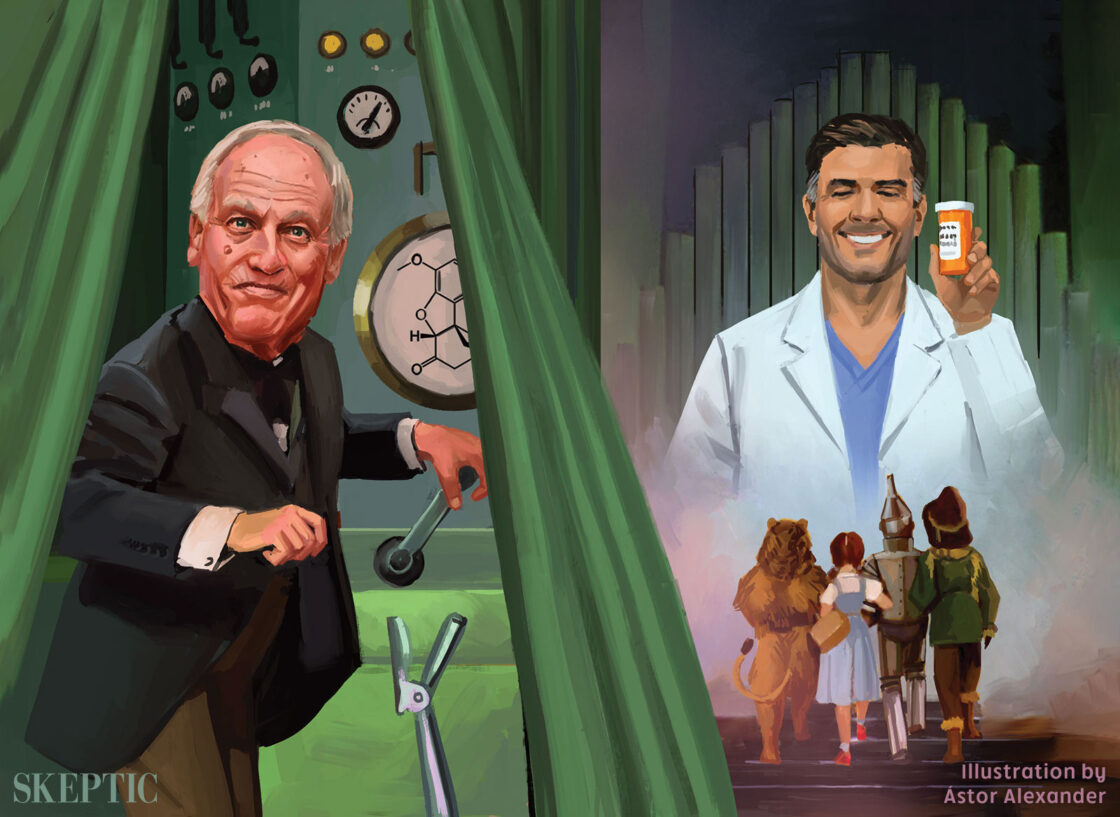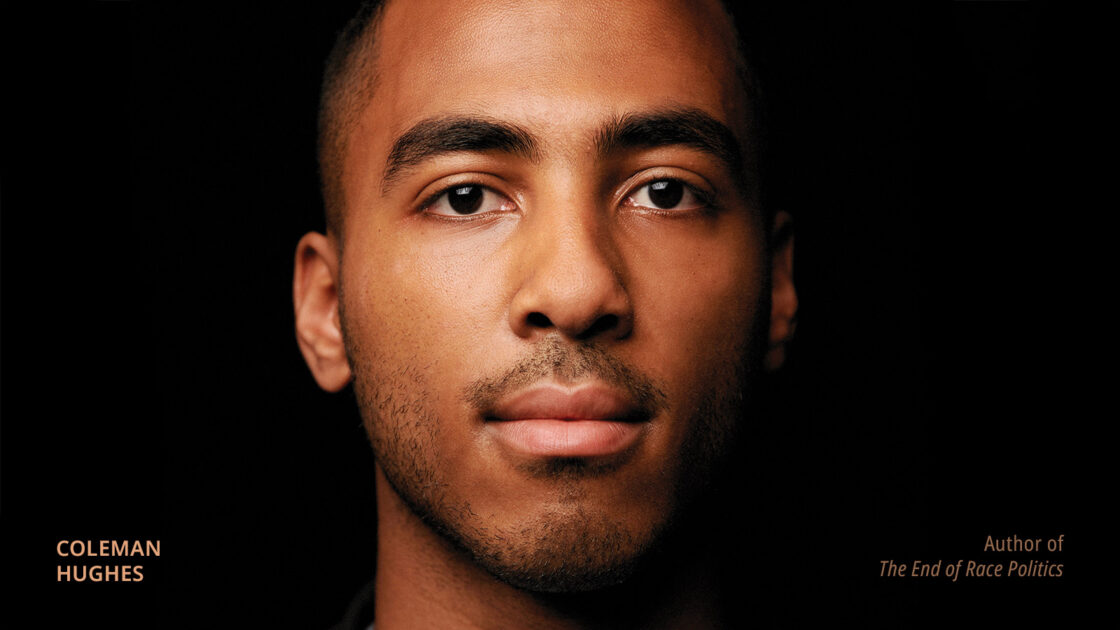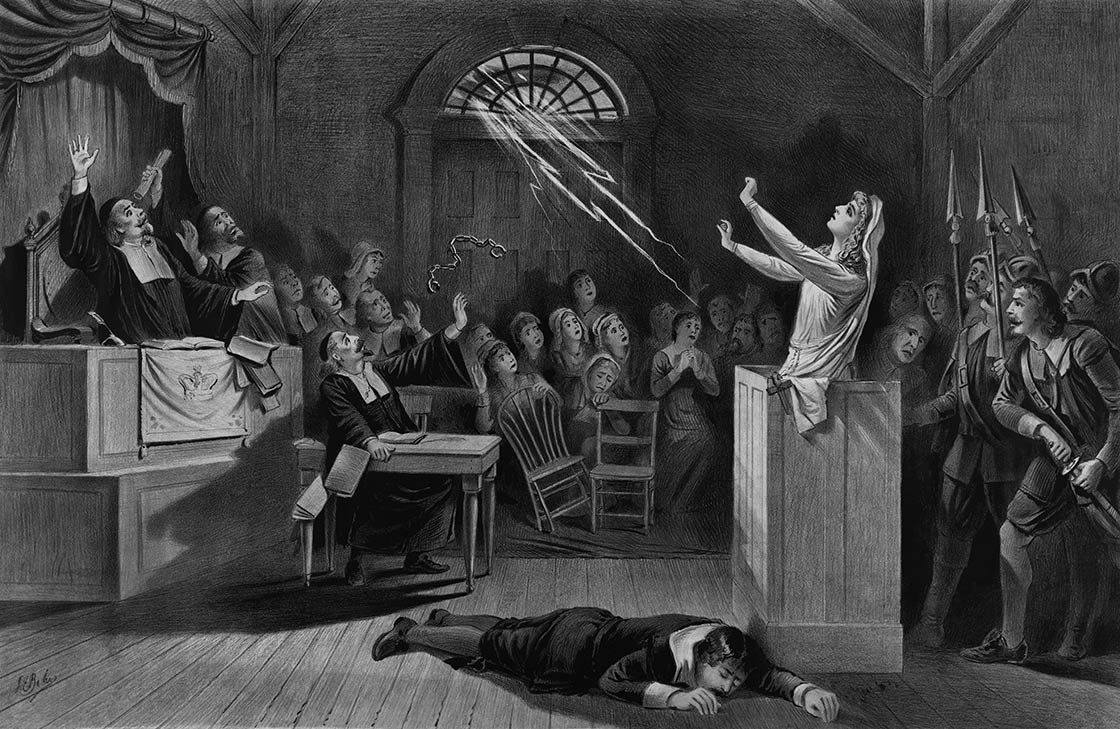Someone makes a public comment out of line with progressive opinion. Enforcers of such opinion promptly descend on the offender online, pelting him or her with abusive slogans in the name of Justice. The offender buckles, offers submission — even while protesting that he or she didn’t really mean any harm — and promises, perhaps, to become a better person. Over recent months we have become all too familiar with this sequence, which by now constitutes virtually a genre.
For example, answering a question about the possibility of a transgender player competing against women on the tennis court, the former champion Martina Navratilova tweeted on Dec. 20, 2018:
Clearly that can’t be right. You can’t just proclaim yourself a female and be able to compete against women. There must be some standards, and having a penis and competing as a woman would not fit that standard [sic].
Given her history in tennis, Navratilova must have felt she was on solid ground in commenting on the principles of competition. Nevertheless, when the transgender cyclist Rachel McKinnon reviled her (a lesbian) as “transphobic,” she apologized, placed herself under a sort of gag order, and deleted the original tweet, in effect withdrawing her argument.
I am sorry if I said anything anywhere near transphobic — certainly I meant no harm — I will educate myself better on this issue but meantime I will be quiet about it. Thank you.
The story goes on from there, but the two tweets in and of themselves are enough to suggest an analogy between the extraction of an apology for an ideological offense and the extraction of a false confession in a criminal case. Both Martina Navratilova and an innocent suspect who confesses under pressure disown a position that originally seemed to them self-evident — that it “clearly” can’t be appropriate for a biological male to compete against women, and that one didn’t commit a crime one knows nothing about. Of course, a person who confesses to a murder faces penalties that go well beyond the shaming suffered by someone who apologizes for a comment.
Here, though, I am concerned with a larger point suggested by both the extracted apology and the extracted confession: that our certainties may not be as immune to coercion as we would like to think.
My model of a false confession comes from the 1997–8 case of the so-called Norfolk Four — Danial [sic] Williams, Joseph Dick, Eric Wilson and Derek Tice — each of whom confessed under high-pressure interrogation to a rape and/or murder he had nothing to do with. One of the accused was at sea aboard the USS Saipan at the time of the crime. While the process that undid the four is necessarily more involved than an online confrontation, the aftermath of the latter became an involved tale in its own right, as Martina Navratilova defended herself and apologized by turns. Like the Norfolk Four under interrogation, it seems she couldn’t affirm her innocence without also admitting guilt.
The analogy between the pressuring of an apology from the former champion and the pressuring of a confession from the Norfolk Four is many-sided.
- In both cases the principals were victims of their own good faith. Martina Navratilova brought her troubles on herself by idealistically assuming that the question at issue — the propriety of biological males competing against women — was to be decided by rational argument. The Norfolk Four brought on their troubles by consenting to talk to the police, idealistically assuming that because they were innocent they had nothing to fear.
- In both cases the principals suddenly found themselves accused of offenses they would have found unthinkable a day before. The sheer unexpectedness of the crisis that engulfed them made it all the more unnerving.
- As a result of the concentrated ferocity of the attack on them, the principals in both cases began to assimilate the notion of their guilt. The transformation from a citizen in good standing to a penitent (on the one hand) or a confessed criminal (on the other) was accomplished more quickly than one might have thought possible. In the case of Martina Navratilova, the two tweets were separated by forty-eight hours, during which the attack on her shook her belief in the first principles outlined in the original message. After about nine hours of interrogation that profoundly shook his belief in himself, Danial Williams (the first of the Norfolk Four arrested) began spinning a tale about committing rape and murder — an invention that he actually believed to some degree (Leo and Davis 2010). As if all had been put through the same grinder, the other three Norfolk suspects reached the same point in about the same time (Berlow 2007; Wells and Leo 2008). It bears emphasis that in all cases the accusers attacked persons themselves, not just the positions taken by these persons.
- Though submitting to the charges against them, the accused maintained a sort of bewildered belief in their innocence. In her second tweet Martina Navratilova, now on the defensive, says she intended no harm and seems astonished that she has been accused of fomenting hatred. She appears confused, at once yielding and uncertain about why she should be doing so. (In a later statement she wrote, “So where did I go wrong? Or did I go wrong?”) The Norfolk Four, in the throes of hopeless confusion, maintained their innocence even as they incriminated themselves — and virtually signed their own convictions — by espousing the version of events force-fed them by the police.
- In contrast to those under attack, whose confidence crumbled, the aggressors in each case were possessed by an unwavering belief in the guilt of the accused. This belief went beyond the sort of inference only as solid as the evidence it rests on. Indeed, it seems independent of evidence. The complete lack of physical evidence against the Norfolk Four (and the presence of DNA evidence against the actual perpetrator) did not diminish the interrogators’ certainty that all four committed rape. There is no evidence, either, of the hatred of which Martina Navratilova was accused. The belief that a biological male competing as a woman enjoys an unfair advantage doesn’t remotely establish that the holder hates transgender women — is “transphobic.” Navratilova’s friend and former coach, Renée Richards, born Richard Raskind, has taken the same position regarding competition on the tennis court between women and biological males.
- In order to weaken the principals’ belief in themselves, the accusers claimed insight into the sinful depths of their being. The allegation that a single message proves Martina Navratilova’s transphobia suggests that her pathology is otherwise well hidden, lying below the surface (and perhaps all the more poisonous for that). In the controversy’s second round she was accordingly labeled not just transphobic but “deeply transphobic.” Interrogators of the Norfolk Four also played the depth psychologist, probing the dreams and fantasies of the accused and weaving what they found into a tale of guilt. (One thinks of the Salem witch trials, in which the “spectral evidence” of dreams was admitted.) Whereas Navratilova promised to “educate” herself, interrogators in cases of false confession have been known to explain to the suspect, as it were educationally, how it is that the mind manages to bury material too shocking to acknowledge, and how, therefore, you can commit a violent crime while having no apparent memory of it. The interrogators of Danial Williams took this line.
- In both cases the principals found a way to preserve a modicum of self-respect. By stating that she meant well and vowing to read up on the topic in question, Martina Navratilova implies that her offense didn’t spring from ill will but a lack of “education.” In the interrogation of Danial Williams, which set the pattern for the others, detectives floated the idea that he committed rape and murder without knowing it, possibly in a blackout: a moral escape clause designed to make it easier for him to accept the charges against him. Under the influence of interrogation, each of the Norfolk Four ended up bewildered, quite as if he had been another person while committing his own crimes.
- The online vigilante who confronted Martina Navratilova acted like someone with moral authority, as did the police in the case of the Norfolk Four, and in all instances the accused — caught off guard — seem to have felt that they wouldn’t have been set upon by such figures unless they were really guilty. In 1984 when the arrested Winston Smith runs into an acquaintance in the Ministry of Love and asks if he’s guilty, the man replies, “Of course I’m guilty! You don’t think the party would arrest an innocent man, do you?” Martina Navratilova’s initial deference to her own attacker makes no sense unless she too assumed the latter was right. Did McKinnon not pose as an agent of Justice? If a common boor rather than a crusader had defamed her online, presumably Navratilova would either have ignored the attack or fought back. The hapless Norfolk Four wouldn’t have believed their own fabrications (in spite of the grossly high-handed means used to elicit them) unless they presumed their interrogators were too august to accuse the wrong person.
- Both Martina Navratilova and the Norfolk Four came under attack by accusers who abused their authority or claimed authority, had no doubt as to the crimes of the accused, and struck at their weak points; but all accused could put an end to their torment at any moment merely by saying the magic words of submission. This they did — to their eventual regret in all cases.
- No matter how painful the attack on them, both Martina Navratilova and the Norfolk Four probably wouldn’t have given in to their attackers unless they actually believed, to some extent, the charges against them. In the well documented case of the Norfolk Four, it appears none of the accused confessed without having been convinced that they were guilty or at least might have been guilty of the terrible crimes alleged against them; that is, none made a consciously false confession simply because he couldn’t bear interrogation any longer. True, Eric Wilson said at trial that his interrogation was such torture that “If they had told me that I killed JFK, I would have told them I handed Oswald the gun” (Berlow 2007); but during the interrogation itself his mind was so befogged that he was “horror-struck by the possibility that he really had committed the crime” (Leo and Wells 2008). Similarly, it’s an index of the violence done to Danial Williams’ standards of reality by interrogation that he “came to believe that he might actually have committed” both rape and murder (Leo and Davis 2010). Ordinarily we would be hard put to make sense of the statement, “I might have committed rape and murder.” Does the speaker mean he was in an altered state? Sleepwalking? Martina Navratilova’s second tweet, which offers a sort of bewildered mea culpa for the first, seems to say, “Maybe I am transphobic.” She too, it seems, found herself in a twilight zone between belief and disbelief where she began to suspect she might actually have been guilty of the offense in question — in this case a purely ideological one.
- Before long, all recanted their admission of wrongdoing. For the Norfolk Four it was too late. In the eyes of the law they were damned by their own words, and all were convicted and imprisoned. Martina Navratilova regained her balance, branded her attacker “a nasty human being,” and two months after the affair reaffirmed in print her contention that a biological male who competes against women violates fair play — but regretted the “dogmatic” manner in which she originally expressed herself. (To enrich the analogy with suspects so dizzied that they protested their innocence while confessing their guilt, she then issued yet another statement — this on her own website — that defended her original position but apologized for the word “cheat.”) Though she deleted the offending tweet as demanded by her attacker and took a self-imposed vow of silence, she later claimed she stood her ground all along, and worried that others would lack her strength. “I’m relatively tough and was able to stand up for myself in my Twitter exchange with McKinnon, but I worry that others may be cowed into submission or silence,” she wrote in the Sunday Times of London on Feb. 17, 2019. It’s as if her original submission to McKinnon had been so out of character that in retrospect she edited it into something else. No matter how we interpret this sequence, there’s no mistaking that the charge of spreading hatred so unnerved Navratilova that it suspended her belief in a principle that seemed to her axiomatic till that moment. In fact, she would later express regret for phrasing the principle axiomatically. Like the false confessions that came back to haunt the Norfolk Four, her apology for affirming her sense of fair play, followed by other expressions of regret, points to the power of pressure-tactics over those subjected to them. A sufficiently aggressive attack in the name of a sufficiently compelling ideal (and what’s more compelling than Justice?) can buckle even a Martina Navratilova and undercut her belief in herself almost as completely as the Norfolk Four lost their footing in reality under interrogation. And such attacks have become daily occurrences.
These issues are all the more significant in that the theoretical invulnerability of thought to coercion lies at the foundation of the philosophy of tolerance. Jefferson’s “Bill for Establishing Religious Freedom” (1779) draws on Locke’s Letter Concerning Toleration (1689), which in turn argues that a human being cannot be coerced into believing a religious tenet or indeed anything at all. The attempt to compel belief by the force of law (or fire or sword) is condemned to failure. “Such is the nature of the understanding that it cannot be compelled to the belief of anything by outward force.” Locke continues:
The laws are of no force at all without penalties, and penalties in this case are absolutely impertinent, because they are not proper to convince the mind. Neither the profession of any articles of faith, nor the conformity to any outward form of worship can be available to the salvation of souls unless the truth of the one, and the acceptableness of the other unto God, be thoroughly believed by those that so profess and practice. But penalties are no way capable to produce such belief. It is only light and evidence that can work a change in men’s opinions.
In effect, to prescribe opinions under threat of punishment (especially, but not solely, in matters of religion) is an act of mad folly, because our minds are so constituted that belief cannot be prescribed to us at all. We cannot oppose our own nature, and our nature is such that belief arises from “light and evidence” alone.
If only it were true.
In the witch-craze that convulsed Europe in the 16th and 17th centuries (and the North American strain, in the form of the Salem witch trials, flared up within three years of Locke’s Letter), arrested women confessed to being witches, even though it was common knowledge that witches were given to activities like night-flying, unholy sabbaths, and sexual congress with the Devil. And not only did they confess to the charges against them, many actually believed them. Upon reviewing the evidence, the historian H. R. Trevor-Roper concluded of the witch trials that “for every victim whose story is evidently created or improved by torture, there are two or three who genuinely believe in its truth” (Trevor-Roper 1969). While no single theory will cover all cases, the sheer majesty of power may well have been enough to convince many accused of witchcraft by the officers of power that they really were witches, with everything that entails. Not only “light and evidence” but awe convinces. Like Winston Smith’s acquaintance who simply can’t imagine that he could have been arrested without good cause, many an arrested witch must have assumed that power did not err. And like the Norfolk Four, who were brought to believe that they committed horrific acts of which they had no memory, many an arrested witch must have concluded that her inability to remember coupling with the devil (or whatnot) didn’t prove that the act never took place.
Whereas the philosophy of tolerance rests on the optimistic assumption that belief cannot be dictated or coerced, the philosophy of intolerance that has taken root among progressives (centered on the prohibition of “hate speech”) draws power from demonstrations of coerced belief. Many who are reviled for saying things offensive to progressive orthodoxy promptly recant, apologize, and offer submission with every appearance of sincerity. A few weeks before the Navratilova affair, when former astronaut Scott Kelly was set upon by online critics for an admiring reference to Churchill, he apologized, adding, “I will go and educate myself further on his atrocities, racist views, which I do not support.” Evidently following the same script, Navratilova too vowed to educate herself, as noted. It’s as if both fell into the default pattern of deference to the moral and intellectual superiority of their attackers. Every instance of this kind serves to vindicate and embolden the agents of intolerance, because their power over opinion has been demonstrated and their status as the enforcers of morality has been recognized. Precisely as a movement, the social justice crusade feeds on itself, and instances of penitents confessing to crimes of opinion and duly espousing the beliefs of their accusers help fuel this self-propelling effect.
While Locke grounds his argument against compulsory belief on the nature of sincerity, the latter suffers a change of meaning in an ideological crusade like the one Martina Navratilova ran into. In such conditions zealotry and militancy come to seem like the cry of sincerity itself, just as defending oneself in the face an attack, even to the extent of pleading “I didn’t really mean it,” looks like hypocrisy, or a feeble attempt at hypocrisy. And here we encounter a critical difference between the interrogator pressing for a confession and the ideologue who inflicts a public shaming. While the extortion of a false confession imposes a grievous cost on the suspect who signs the document (as noted, all of the Norfolk Four were sent to prison), rituals of shaming attract mobs that degrade the world at large. Interrogators hellbent on getting a confession use identical tricks and follow the same textbook literally and figuratively, but don’t actually imitate one another. Public frays in which ideological offenders are shamed and broken generate other incidents of the same kind, with attackers picking up the terms, slogans and tactics already deployed so successfully. Wild replication — metastasis — sets in. A latter-day witch-hunt is born. ![]()
About the Author
Stewart Justman recently retired after teaching humanities at the University of Montana for four decades. He lives in Missoula, Montana, writes on literature and medicine, no longer jogs, and recommends retirement to all who haven’t tried it. He is the author of three books on medicine: Do No Harm, an investigation of the controversy surrounding the drug finasteride; Seeds of Mortality, a meditation on illness that received the 2004 PEN Award for the Art of the Essay; and The Nocebo Effect: Overdiagnosis and Its Costs, a study of some consequences of the medicalization of common ills.
Works Cited
- Berlow, A. 2007. “What Happened in Norfolk?”, New York Times Magazine, Aug. 19, 2007.
- Leo, R. and Davis, D. 2010. “From False Confession to Wrongful Conviction: Seven Psychological Processes,” Journal of Psychiatry & Law 38 (2010): 9–56.
- Trevor-Roper, H. R. 1969. The European Witch-Craze of the Sixteenth and Seventeenth Centuries. New York: Harper & Row.
- Wells, T. and Leo, R. 2008. The Wrong Guys: Murder, False Confessions, and the Norfolk Four. New York: New Press.
This article was published on March 13, 2019.


















since no comments are allowed on the podcast ill make mine here.As a left handed person, I have often reflexively identified myself with leftist viewpoints. I have recently thought that this is similar to the idea in psychology that when holding a hot cup of coffee you view the other person as having a warm personality. So is it the fact that right has two meanings-right handed, and being correct, as in-2 plus 2 equals 4-yes you are right(wing)so these two poles are delusional based on our split bodies left hand/foot right hand /foot left brain right brain negative positive I would submit we are wasting valuable time discerning reality through this false split. Oh-Michael Shermer’s allegation that people in older civilizations lived lives of quiet desperation based on no evidence whatsoever is outrageous,especially in light of the epidemic of depression we see today. He has absolutely no idea how these people felt about their lives-none whatsoever I’m not taking the noble savage position either so take the sign off me I read Human errors by Jeremy Lent Life always been difficult now, and then and always will be.But you don’t actually believe there never ever never 1 moment of happiness in these peoles lives?Outrageous
“That governing body should be presumed competent.” Geez, that’s almost exactly the quote from 1984. This is not a rational argument. The governing body must explain it’s reasons for their rulings, and they are subject to rational disagreement, just like anybody else’s reasons.
“We don’t need a bunch of non-experts who don’t have access to all of the information…”.
One of the points of the piece is that the interrogators or accusers are often presumed to have knowledge or authority which they do not actually have, as in the Norfolk case. The accusers make false accusations.
Whether you are an “expert” or not, you are not entitled to condemn someone on the basis of one comment – you don’t have the information for that. If you think a mistake has been made – explain why.
I agree with @123elle
I might add though that for me this article is in itself an appeal to emotion, employing an initial misdirection, & later characterisations, in order to elevate a false analogy into a like jeopardy.
The first error is the elevation of an assumptive allegation to a sincere intention to be fair, open, and honest i.e. Good Faith, which it plainly is not as it fails on two of the three conditions.
“You can’t just proclaim yourself a female and be able to compete against women.”
and the dependent…
There must be some standards, and having a penis and competing as a woman would not fit that standard.
Can you just proclaim, and is that the standard that was applied?
Of course not.
But like the gender bathroom laws in order to ‘protect the ladies & kiddies’, it’s not reasoned but a stalking horse for an appeal to emotive bias.
To justify the right to overreaction is predicated on overlooking that at its heart is a false allegation bearing false witness.
Failure to get a free pass for a once popularly assumed and unchallenged right to such isn’t persecution, it’s refutation.
The only difference between what Navratilova did and what Omar did is the difference between right and wrong.
@ #5 123elle
Seems that Justman isn’t the only one with a head of steam! And I think his analogy holds, even if you disagree with his choice of examples. He’s illustrating the idea that belief can be coerced.
@ #6 Carl
I think that’s Justman’s point! That the sport’s governing body does (or at least should) make rational decisions, and she “idealistically” agreed with that, only to be violently shot down by an idealist. Again illustrative of Justman’s thesis.
Above said, it was jarring that Justman singled out progressives. Perhaps because they’ve been in the news recently, banning speakers from colleges for example, plus of course Omar’s troubles. Not that I’d call the Democratic leadership progressive! I think the tactics examined here are used more by authoritarians, who themselves tend to be on the right wing of the political spectrum.
I could be wrong – I haven’t followed GOP politics for long – but it seems like they’ve very cynically begun co-opting SJA-style shaming because they see that it works on liberals.
They don’t have to believe that Omar is more anti-Semitic or racist or whatever than they themselves are in order to use the label against her, while they are immune to the same complaints.
I was unable to read this. It starts out with an objectively incorrect assertion: “Martina Navratilova brought her troubles on herself by idealistically assuming that the question at issue — the propriety of biological males competing against women — was to be decided by rational argument.” This is wrong. The sport has a governing body. That governing body should be presumed competent. They are the experts in the field, and they investigated the question and found in favor of the transgender athletes.
We don’t need a bunch of non-experts who don’t have access to all of the information trying to re-assess this question. If we investigate and discover the governing body got it wrong, that’s a different issue. But they should be presumed to have acted correctly.
This rather tortured “analogy” only works to expose Mr. Justman’s own agenda and considerable head of steam — over today’s Left in general, I might speculate.
Comparing an online comment kerfuffle with a complex miscarriage of felony justice (and the Salem witch hunts to boot!) involving arrest and trial doesn’t hold water, despite the footnotes and lofty quotes. I could see right through it.
Navratilova was guilty of shooting from the hip and being excessively blunt and — yes — uneducated, as she waded into a fraught issue without doing some research.
But even her abject apology doesn’t make this incident a defining moment in the literature of false confessions.
The author’s massive head of steam over the Left’s “SJW” style is in full view here. And I know this is a particular bete noir of Schermer himself, which explains the presence of this article).
Mr. Justman could have found more vivid manifestations of overreaction spurred by relatively minor transgressions, but Schermer has sort of staked those out already. So this is what was left on the plate.
The whole issue of transgenderism and athletics is yet to be hammered out, but the larger fact is that trans people have really been battling a fierce headwind of hate, disparagement and mockery, and that’s what fueled the intensity of the response to Martina. That’s all. This wasn’t Norfolk or Salem-level where life itself hung in the balance and the effort to pour it into those much larger vessels doesn’t work.
TLDR: no mention of Nazis tortured for false confessions at Nuremberg and elsewhere. Google: nazi false confessions malmedy hoess
I agree with all points on those examples, it’s just a shame that it was casually connected to progressives.
Wouldn’t it be great if skeptical thinkers could agree to be against this kind of reaction regardless of political bias of the attacker or the attackee?
The emotional conviction of many that this is a progressive thing would need some more scientific validation, otherwise my guess is that it’s a reaction to misleading vividness (as well as possibly “outrage porn” sources that love these kinds of topics).
It’s not just progressives who are guilty of shaming. The recent situation of Rep. Omar being accused of anti-Semitism shows that conservatives play the same game.
Navratilova was perfectly correct in her initial remarks. After all, why else do we have separate competitions for men and women?
I regard her retraction as total moral cowardice, possibly motivated by the wish to maintain the value of her brand. A brand, incidentally, that she used to help sell cigarettes to women. *That* is something worth apologising for